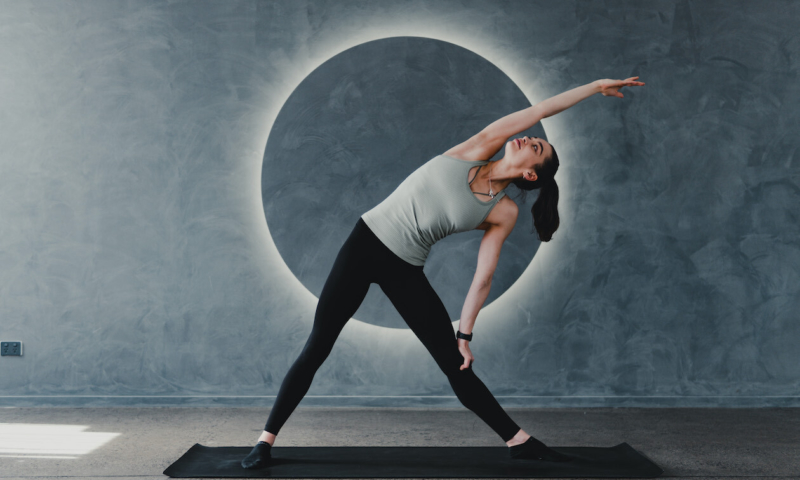
Being your own boss certainly has its perks. You can build your business exactly how you want, you can control the profits, and you can choose when, where and how you work. But being a sole trader can also be really hard work. Often, you may feel like you have to be an expert in everything, and without a team around you it can feel like you’re on your own. According to Xero’s Small Business Wellbeing Report, 39% of small businesses say running a small business has negatively affected their health.
From our physical and emotional health through to mental and spiritual, wellbeing is a key component of happiness and contentment. As we spend so much time at work, it’s crucial to ensure we are nurturing an environment of positive wellbeing in our work.
Looking after your wellbeing can reduce stress
For personal trainer Kelly MacDonald (Kelly Mac PT), the COVID-19 lockdown was extremely stressful – both emotionally and financially. “The biggest concern for me was not knowing when I would be able to get back to work and doing what I love in the gym,” says Kelly.
Having the technology in place before the lockdown allowed Kelly to offer video classes online, and sell ebooks with training programmes that clients could do at home. Staying connected with clients is important to Kelly, and she does this through a mobile chat group for her clients to communicate with each other and share their progress.
As a sole trader, Kelly understands the significant stress that comes with running a business on your own. “For busy business owners wanting to reduce their stress and embrace a more balanced lifestyle, I find it helps to think about your wellbeing in a three-tier pyramid,” says Kelly.
Lifestyle is the foundation pillar of the pyramid, which includes activities that reduce stress such as walking outside, or relaxing at places you enjoy. The next pillar focuses on nutrition – making healthy choices and fueling your body with nutrient-rich foods that will help your mental focus. The top tier is training where you are encouraged to do regular forms of exercise that keep both the mind and body active.
It can be hard to know where to start with wellbeing in the workplace, so we’ve created a simple guide called The Check In for all small businesses to help them embrace wellbeing.
Here’s some tips for using The Check In if you’re a sole trader:
Step one: Getting to know your team
Instead of your team, try getting to know your community. Find out what groups are available that you could join, get to know other businesses near you and what they do. It’s important to build a good support network around you to share thoughts and feelings with, which is a key part of looking after your wellbeing.
Step two: Fostering connections
If you don’t have a team, you can still create a culture of celebration by acknowledging your own achievements and wins. Why not treat yourself to a nice lunch out when you achieve one of your goals?
Instead of hosting social events, consider attending them. Reach out to networks and groups that attract other sole traders or people in your industry. Connecting with others in a similar situation to you can help to reduce stress, improve happiness and increase productivity.
Step three: Looking after yourself
A healthy body helps to create a healthy mind. For sole traders who wear all the hats in the business, the days can fill up with tasks, and it can be easy to forget about taking care of your physical health. Try and get out for a quick walk during the day to get the blood pumping. Ensuring conscious healthy eating habits is another important way to look after physical health.
Getting regular quality and restorative sleep plays an essential role in good physical and mental health. Technology is known to interrupt modern sleeping patterns. The stimulation that we get from smartphones, tablets, laptops, LED lights and even televisions can be a nightmare when you’re trying to get some rest. It can be hard to switch off when you feel like you need to keep working, but turning off devices before you go to bed can improve the quality of sleep and therefore improve your wellbeing.
Step four: Making it okay to ask for help
When you’re a sole trader, taking a sick day can be a really hard thing to do. It may feel like there’s no one else to take care of things if you’re not there. One thing to consider is reframing the concept of a sick day, to include mental health demands as well. Taking a ‘wellbeing day’ is so important.
At Xero, we understand that life can be hard, especially as a sole trader. But we want to make it easy for you to get help. Xero customers have access to free and 100% confidential wellbeing support through the Xero Assistance Programme, which gives them and their families access to face-to-face, telephone, live chat and online counselling, as well as a range of resources. To find out more, email xap@xero.com.
Step five: Making a longer term commitment to wellbeing
Looking after your wellbeing makes good business sense too. Every dollar spent on mental health services in New Zealand will repay the nation with $3.50 in productivity gains and other savings.
Making a long-term commitment to your wellbeing is crucial for sole traders because you are the business. Make wellbeing one of your business goals, and have a friend or someone in your support network who can keep you accountable. By putting in effort to manage your wellbeing, you’re also putting effort into ensuring your business thrives.
Leave a Reply